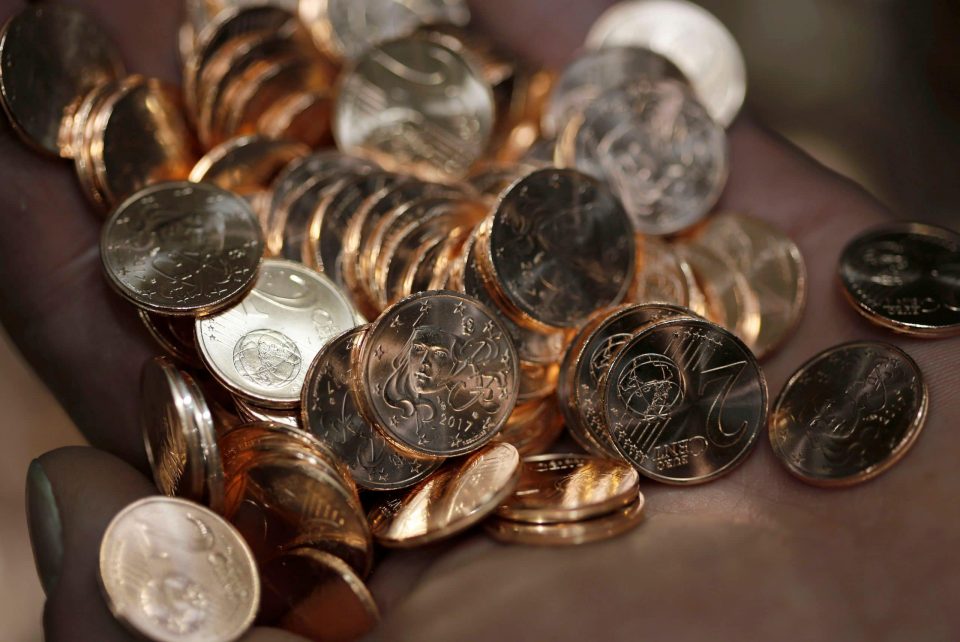PARIS, March 25 — Business activity collapsed from Australia, Japan and Western Europe to the United States at a record pace in March as measures to contain the coronavirus pandemic hammer the world economy, cementing economists’ predictions of a global recession.
The highly contagious coronavirus, which causes a respiratory illness called Covid-19, has caused entire regions to be placed on lockdown and in some places soldiers are patrolling the streets to keep consumers and workers indoors, halting services and production and breaking supply chains.
“The global health crisis is rapidly morphing into a global recession, as there is a clear tension between preventing infections and ruining the economy,” said Edoardo Campanella, an economist at UniCredit Bank in Milan. “However, a wise policy coordination between health and fiscal authorities should allow a V-shaped recovery once containment measures are relaxed.”
Data firm IHS Markit said today its flash US Composite Output Index, which tracks the manufacturing and services sectors, dropped to a reading of 40.5 this month. That was an all-time low and followed 49.6 in February. A reading below 50 indicates contraction in business activity.
The picture was equally grim in the 19 countries that use the euro. IHS Markit’s flash composite PMI for the euro zone plummeted to a record low of 31.4 in March. That was by far the biggest one-month fall since the survey began in mid-1998 and below all forecasts in a Reuters poll which gave a median prediction of 38.8.
In France, services activity fell to a record low and manufacturing saw its steepest drop since the global financial crisis more than a decade ago.
“Taken together, these declines suggest GDP is collapsing at an annual rate approaching double digits,” IHS Markit economist Eliot Kerr said.
A PMI for the services sector in Germany, Europe’s largest economy, showed a record contraction in activity, while sister surveys showed Britain’s economy shrinking at a record pace.
IHS Markit said the March figures suggested the euro zone economy was shrinking at a quarterly rate of around two per cent, and the escalation of measures to contain the virus could steepen the downturn.
After an initial outbreak in China brought the world’s second-largest economy to a virtual halt last month, an ever-growing number of countries and territories have reported a spike in infections and deaths, leading to “social distancing” policies aimed at containing the spread of Covid-19.
Mirroring the emptying of supermarket shelves around the world, indebted corporates have rushed into money markets to hoard dollars, with a global shortage of dollar funding threatening to cripple firms from airlines to retailers.
PMI surveys from Japan showed the services sector shrinking at its fastest pace on record this month and factory activity contracting at its quickest in a decade.
This was consistent with a four per cent contraction in 2020, Capital Economics senior economist Marcel Theliant said. The postponement of the Tokyo Olympics is expected to deal a heavy blow to the world’s third-largest economy.
Infinite stimulus
With most asset markets tanking, global central banks have been rolling out extraordinary measures on an almost daily basis to stop the rot.
In its latest drastic step, the US Federal Reserve on Tuesday promised bottomless dollar funding and an array of programmes to help keep companies afloat.
For the first time, the Fed will back purchases of corporate bonds, backstop direct loans to companies and “soon” will roll out a programme to get credit to small and medium-sized businesses. It will also expand its asset purchases by “as much as needed.”
The Fed last week slashed borrowing costs to zero and took other emergency steps to keep the commercial paper, US Treasury debt and foreign dollar funding markets functional.
But some analysts say infinite monetary policy easing may not be enough and fiscal steps are crucial. There was some optimism on that front, with Democrats and Republicans saying today they were close to reaching a deal on a US$2 trillion (RM8.9 trillion) stimulus package to aid the US economy.
Also yesterday, G7 finance ministers and central bank governors pledged to expand fiscal and monetary actions for as long as necessary to restore growth and confidence.
With the International Monetary Fund predicting a global recession, the world’s 20 largest economies agreed yesterday to develop an “action plan”, but without specifics.
“For the US economy to be able to come out of the current crisis and the ongoing recession relatively unscathed, more radical policy interventions will be needed in the next few weeks,” said Anna Stupnytska, global head of macro and investment strategy at Fidelity International.
Speculation is mounting data on Thursday will show US jobless claims rose an eye-watering one million or more last week.
Goldman Sachs warned the US economy could contract by an annual rate of 24 per cent in the second quarter, 2-1/2 times greater than the previous biggest contraction, after World War Two.
— Reuters





